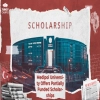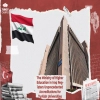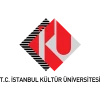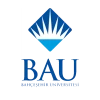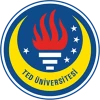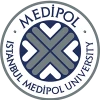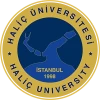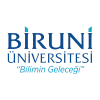Studying child rearing in Turkey provides a deep understanding of the principles and practices involved in raising children and promoting their well-being. With its rich cultural heritage and diverse society, Turkey offers a unique context for exploring child-rearing practices from various perspectives.
This article serves as a comprehensive guide, delving into the various aspects of studying child rearing in Turkey, including universities, programs, admission requirements, curriculum, career prospects, and cultural influences.
Best Universities for Studying Child Rearing in Turkey
Turkey is home to several esteemed universities that offer comprehensive programs focusing on child rearing and child development. These institutions emphasize the importance of nurturing children's physical, cognitive, social, and emotional growth. Some prominent universities offering child rearing programs in Turkey include:
- Istanbul University
Istanbul University offers undergraduate and graduate programs in child development and child rearing. The university's faculty includes experts in child psychology, pedagogy, and early childhood education.
- Middle East Technical University (METU)
METU offers programs in Family and Consumer Sciences, which cover topics such as child development, family dynamics, and parenting practices. The university emphasizes interdisciplinary approaches and practical experiences.
- Ege University
Ege University provides undergraduate and graduate programs in Child Development and Education. The programs focus on understanding child behavior, developmental milestones, and effective parenting strategies.
Child Rearing Programs in Turkey
Child rearing programs in Turkey focus on providing students with a comprehensive understanding of child development, parenting strategies, and the cultural context of child rearing. These programs typically offer degrees at the undergraduate and graduate levels. Common subjects covered in child rearing programs include:
- Child Development
Students gain a deep understanding of the physical, cognitive, social, and emotional development of children from infancy through adolescence. They study developmental theories and learn to apply this knowledge to practical contexts.
- Parenting and Family Dynamics
Courses explore various parenting styles, effective communication strategies, discipline techniques, and family dynamics. Students learn how to foster positive parent-child relationships and promote healthy family environments.
- Child Psychology
This subject delves into the psychological aspects of child development, including cognitive processes, emotional regulation, and social interactions. Students learn to identify and address behavioral issues and provide appropriate interventions.
- Cultural Influences on Child Rearing
Programs in Turkey highlight the cultural aspects of child rearing and explore how cultural values, traditions, and beliefs impact parenting practices. This component enhances students' understanding of child rearing in a Turkish context and prepares them to work with diverse families.
- Research Methods
Students are equipped with research skills to conduct studies related to child development and parenting. They learn research methodologies, data collection techniques, and ethical considerations.
Child Rearing Curriculum and Course Structure in Turkey
The curriculum for child rearing programs in Turkey emphasizes a multidisciplinary approach, integrating theories and practical experiences. The coursework is designed to provide students with a holistic understanding of child rearing and includes:
a. Child Health and Nutrition
This course focuses on understanding children's nutritional needs and promoting their overall health and well-being. Students learn about healthy eating habits, common health issues, and preventive measures.
b. Early Childhood Education
Courses in early childhood education explore best practices in early childhood pedagogy, curriculum development, and the importance of play-based learning. Students gain knowledge of age-appropriate teaching strategies and classroom management techniques.
c. Parent-Child Interaction
This course examines the dynamics of parent-child relationships and effective communication strategies. Students learn techniques to foster positive interactions, support children's socio-emotional development, and address challenging behaviors.
d. Special Needs and Inclusive Education
Students learn about inclusive practices and strategies for supporting children with special needs. They gain awareness of various disabilities and develop skills to promote inclusivity in educational settings.
e. Internships and Field Experiences
Many child rearing programs incorporate internships or field experiences to provide students with hands-on learning opportunities. These experiences allow students to apply theoretical knowledge in real-world settings and gain practical skills in child rearing.
Child Rearing Career Prospects in Turkey
Graduates of child rearing programs in Turkey have diverse career opportunities available to them. They can work in various settings, including:
- Early Childhood Education Centers
Graduates can work as teachers or administrators in early childhood education centers, promoting developmentally appropriate practices and fostering children's growth.
- Parenting Programs and NGOs
Graduates can work in organizations that provide parenting support and educational programs for families. They may contribute to the development and implementation of parenting workshops, educational materials, and community outreach initiatives.
- Research and Academia
With advanced degrees, graduates can pursue research careers or academic positions in universities, research institutions, or governmental organizations. They can contribute to the advancement of knowledge in child development, parenting practices, and family dynamics.
- Policy Development and Advocacy
Graduates can work in governmental agencies or non-governmental organizations involved in policy development, advocacy, and initiatives related to child welfare, early childhood education, and parenting support.
Cultural Influences on Child Rearing
Turkey's rich cultural heritage and diverse society greatly influence child-rearing practices. Studying child rearing in Turkey provides an opportunity to explore the cultural influences on parenting and understand how cultural values, traditions, and beliefs shape parenting styles. Students gain insights into Turkish family dynamics, gender roles, and societal expectations regarding child rearing. This cultural understanding enhances their ability to work effectively with Turkish families and navigate cultural sensitivities.
Student Exchange Programs in Turkish Universities
The questions revolve around the possibility of studying at different universities in different locations outside or inside Turkey. The university offers several programs for local and international student exchange, the most important of which are: Erasmus program, Mevlana program, and Farabi program.
1. Erasmus Program
The Erasmus program is one of the important study programs that allow student exchange between European and other international universities. Turkey joined this program in 2003, and it is one of the easiest ways to study in Europe, where approximately 3 million students have participated since the program's inception.
The program offers financial support, opportunities to learn new teaching methods, learn a new foreign language, and discover new countries, their history, and civilization. To join the program, you must complete at least one academic year, have a GPA higher than 2, pass a language test, provide a personal photo, valid passport, grade report, and letter of recommendation.
2. Melvana Program
The Mevlana program, implemented in 2011, allows student exchange between universities in Turkey and within other countries. To apply for the program, you must complete at least one academic year, have a cumulative GPA higher than 2.5, pass a language test, provide a personal photo, valid passport, grade report, and two letters of recommendation that can be obtained from the university.
3. Farabi Program
The Farabi program allows students to exchange between Turkish universities without canceling their registration in their original university. To register for the program, you must complete at least one academic year (excluding the preparatory year), have a cumulative GPA higher than 2, and have the right to apply for only one university. This grant funds one semester with the possibility of completing further semesters.
Conditions for Studying Child Rearing in Turkey
- Public Universities In Turkey
Admission to some Turkish government universities depends on success in the Turkish YÖS aptitude test or the SAT aptitude test, in addition to obtaining a high school diploma with a varying grade requirement depending on the university.
A TOEFL test and Turkish language proficiency test (TOMER) are required if the language of instruction is Turkish. If the student doesn't have a TOEFL or TOMER certificate, they will have to take a language proficiency test at the same university they're applying to if accepted. If the student passes, they start their first year of study immediately. If they fail, they have to undergo a preparatory year to learn the language.
As for the study requirements in Turkish private universities, they don't require any additional conditions from students. It's enough to have a high school diploma with a grade of no less than 50%. When choosing to study in English, a preparatory year is taught, as well as when studying in Turkish.
Advantages of Registering through Turkey Campus
One of the main advantages that Turkey Campus offers to students when registering at Turkish universities include:
- The ability to sign contracts with private universities in Turkey, which guarantees foreign students' admission and a reduction in tuition fees upon acceptance.
- Turkey Campus provides multiple options for private and public universities, indicating available majors, annual fees, duration of study, and required registration documents.
- Based on each student's motivation, we offer tailored educational consultations for their specific situation.
- We guide students through all the necessary steps for official registration in the university and obtaining a student ID card.
- We also assist in securing suitable university housing and obtaining residence permits for students.
- We maintain continuous communication with students to provide advice and address any inquiries they may have. Apply now
Studying child rearing in Turkey offers a comprehensive educational experience, combining theoretical knowledge with practical skills in promoting children's well-being. Turkish universities provide programs that emphasize child development, parenting strategies, cultural influences, and practical experiences.
Graduates of child rearing programs in Turkey are well-prepared for diverse careers in early childhood education, parenting support, research, and policy development. By embracing Turkey's cultural context, students gain a unique perspective on child rearing and contribute to the betterment of children's lives in diverse communities.
If you're interested in joining one of the universities in Turkey, we at Turkey Campus are pleased to offer you a helping hand and embark on the journey towards your future. Our team of experienced professionals will guide you through the entire application process to Turkish universities, starting from choosing the suitable program to submitting your application, securing your acceptance, and ensuring that you benefit from all available grants and discounts offered by the universities through us.

